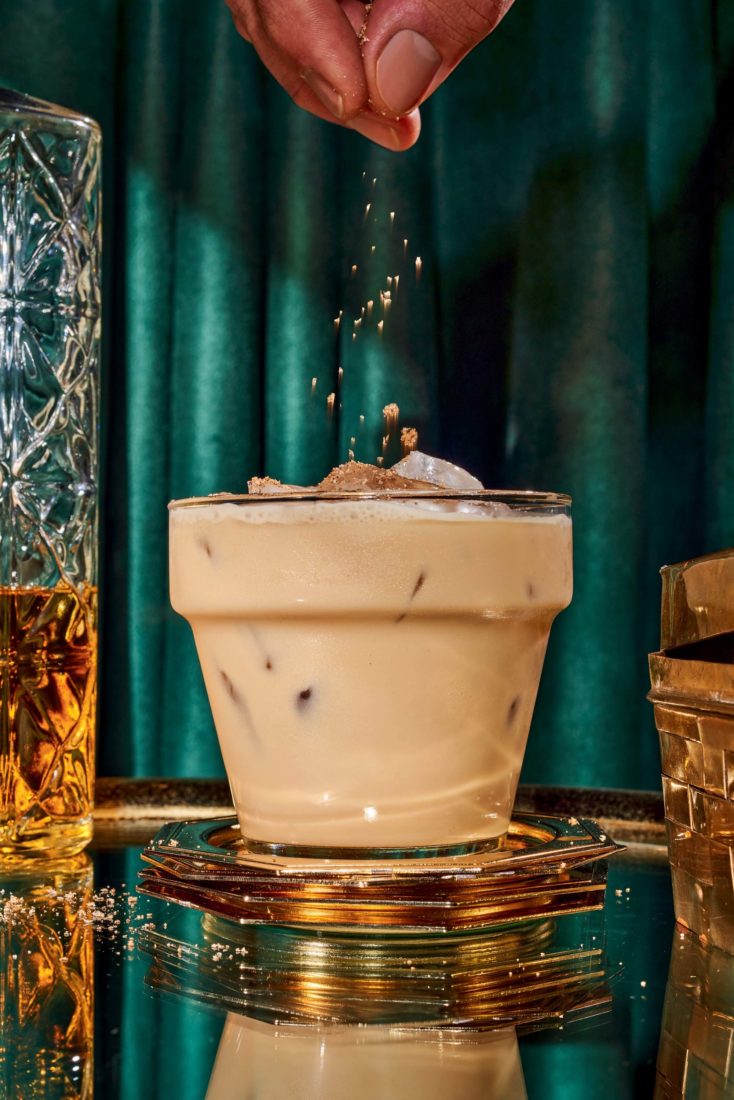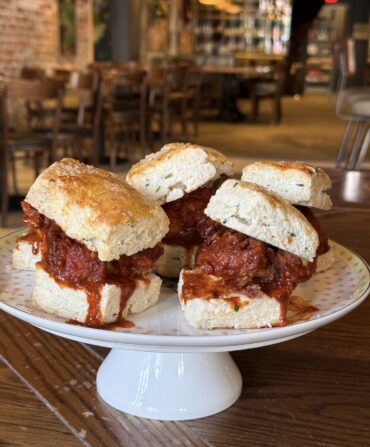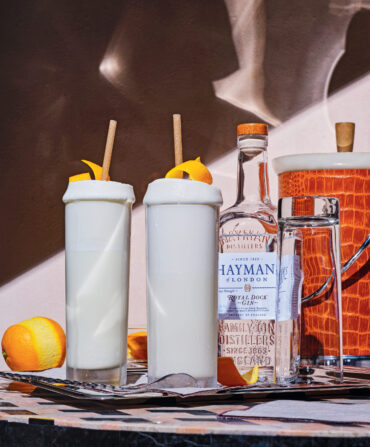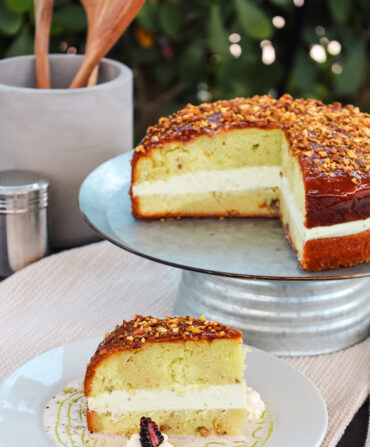A traditional milk punch—liquor, milk, cream, and sugar, shaken into divine frothiness—is like an angelic visitor who arrives bearing a down pillow for your addled head. It’s often served at brunch, and especially comforts on those mornings when every sound seems rudely amplified (“Does the cat need to purr so loudly?”).
But perhaps milk punch is a little too angelic? After all, it’s a drink often associated with New Orleans, where angels tread hesitantly. Shouldn’t it have a character that’s a little more edgy—even devilish?
Correct answer: yes. If you add a double dose of bitterness—not enough to topple it into incivility, only to give it a rakish smirk—it morphs into something like a gracious Southern belle who occasionally lets loose with a blue streak.
Brittany Conerly, a food photographer and recipe developer (and sometime food blogger at her Beyond the Bayou), lives in Dallas now but is a New Orleans native. “Did I grow up drinking milk punches?” she asks. “No. A White Russian was probably the closest thing I had,” though she does remember milk punch as a popular drink during the holidays and Carnival season.
When she revisited the recipe, she saw room, not necessarily for improvement, but for extending the punch’s range with some curated additions. She started with coffee. “I have to have Community Coffee with chicory when I’m home,” she says. So coffee went into the punch—a natural boost for a morning drink and an ingredient that’s been used in cocktails across time, including in the sixties when recipes occasionally called for a spoonful of instant.
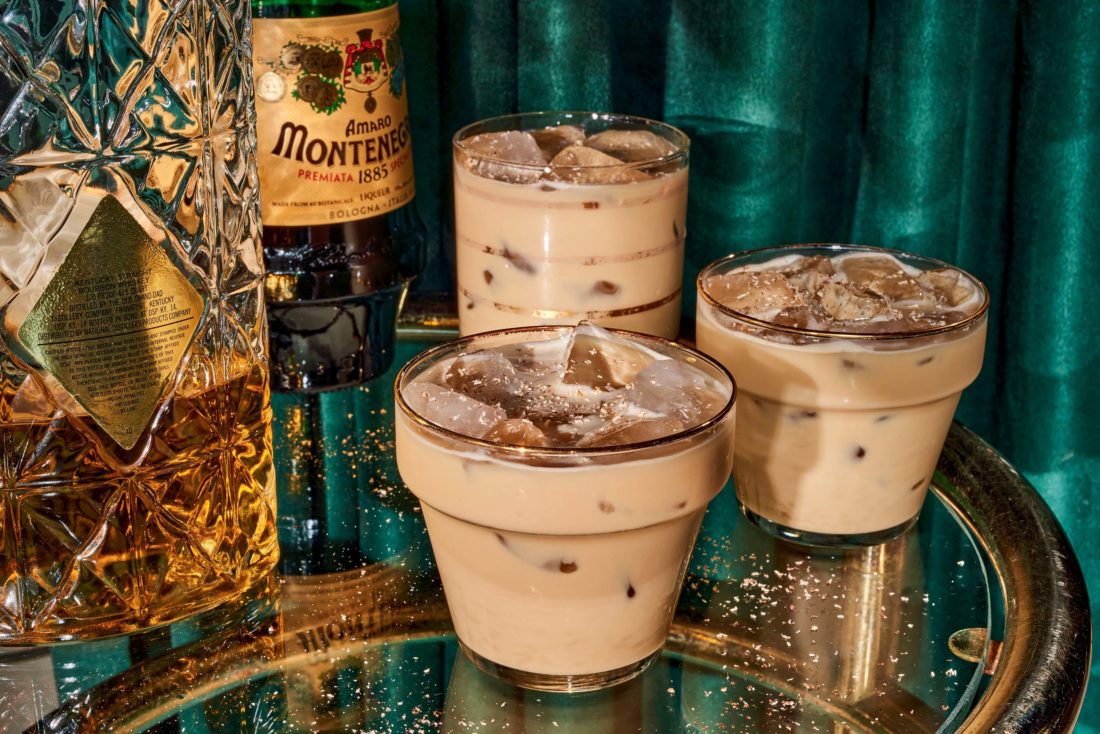
Then came a dollop of Italian amaro—the Italian word for bitter. Conerly prefers Montenegro, made from an 1885 recipe that features top notes of bitter orange, which gives the punch a hint of another iconic New Orleans drink: Café Brûlot, a French Quarter staple made with brandy, coffee, and orange liqueur. But try any other amaro you might have on hand—the creamy ballast tends to keep it in check.
You may also consider this milk punch a spiritually agnostic drink—just about any spirit will enliven it to good effect, including brandy, bourbon, or rye. Conerly opts for rum, which adds a bit of roundness and further tempers the coffee and amaro. A medium-bodied aged rum (like El Dorado or Mount Gay) works well. “It’s a good, straightforward drink for brunch or for the evening,” says Conerly, who tailored this version for individual servings, “and it’s made with pretty simple ingredients that people may already have on hand.”
Every cocktail, after all, could use a roguish element. “If I got rid of my demons,” Tennessee Williams once said, “I’d lose my angels.”


